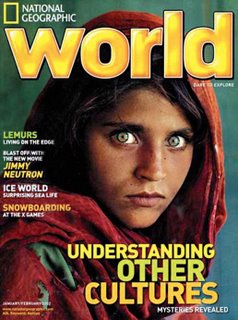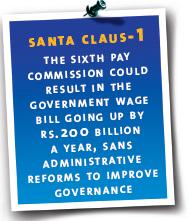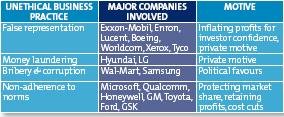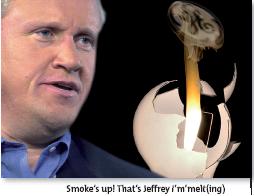6IF YOU CAN’T TAKE THE HINT, YOU’RE PROBABLY NOT IN THE LOOP, OR WORSE, EVEN DUMB...

FCB-Ulka is a master of the art of stumping viewers with its uniquely crafted commercials, and the Tata Indica V2 Xeta campaign proved to be yet another milestone for the advertising agency. “The Indica Xeta was planned by Tata Motors as a car that will take on the strong petrol offerings of Maruti (Alto) and Hyundai (Santro),” explains M. G. Parameswaran, FCB Ulka Executive Director and CEO, Mumbai, adding that the agency was briefed to work on a communication plan that launched the new brand with an impact. The brand name Xeta was derived from the engine of the car that provides extra efficiency torque advantage. Boasting a powerful fuel-efficient engine, ample space, great looks and an unbeata
ble price, the Xeta was truly a luring proposition targeted at the younger first-time car buyer, say the agency guys. And in sync with the attributes of the brand, the creative brief was evolved to say that a car buyer must have a hole in his head if he did not purchase, or at least consider the Xeta!
“From there was born the ad film, which said that not considering a Xeta is equivalent to saying no to four lovely women who are inviting you for a day out at the beach,” simplifies Parameswaran. “While we have used humour in the past, like the ‘Liar, Liar’ comme

rcial last year, we have more often used a very rational selling message,” says Parameswaran, going on to mention that “for the Xeta we decided to use humour, a more emotional overtone to cloak a very rational offering.” The commercial begins with a group of four attractive girls driving their Indica Xeta on a sprightly number. They are hot, chirpy and going to have a good time. Midway, they spot a good-looking guy standing on the road and stop the car. As they sing to him: ‘We want a sizzling hottie, who would like to get naughty. Do you know any man, who’ll help us rub suntan?’ The ‘hottie’ thinks for a while and blankly points out, mumbling, “Maybe you should try the beach café.”
The disgusted girls leave the bloke behind, who’s quite foxed as they speed their vehicle away collectively exclaiming, “Dumb!” The voiceover in the next shot goes, “Fortunately, life gives you a second chance. So, here’s the new Indica Xeta...,” wittily concluding, “If you still miss it… you gotta be dumb!” The commercial carries a refreshing hue to it and was shot in Goa by the Director, Rajesh Saathi of Kerosene film, with the film scripted by Dharmesh Shah. Parameswaran grins, “I was told that the shooting was quite incidentfree, in spite of having some explosive- looking models.” He, however, reveals that the original model cast for the film backed out because he did not want to be labelled ‘dumb!”
But the bold statements in the ad, that too coming from a bunch of scantily clad, beautiful and liberated looking women, was found to be vulgur by many, which triggered the old debate about sex in advertising to start all over again. Nevertheless, Parameswaran is excited about the outcome of this commercial, beaming, “The film has won excellent reviews from ad experts; your magazine has featured it in its Top 10 rankings now for over three months. Another newspaper rated it as the ad of the week.” An ace attempt to create a new brand with a distinctive identity and a set of cool appealing to- the-youth values, the film has worked brilliantly, leaving thousands quite literally ‘dumb’ struck!

 rcial last year, we have more often used a very rational selling message,” says Parameswaran, going on to mention that “for the Xeta we decided to use humour, a more emotional overtone to cloak a very rational offering.” The commercial begins with a group of four attractive girls driving their Indica Xeta on a sprightly number. They are hot, chirpy and going to have a good time. Midway, they spot a good-looking guy standing on the road and stop the car. As they sing to him: ‘We want a sizzling hottie, who would like to get naughty. Do you know any man, who’ll help us rub suntan?’ The ‘hottie’ thinks for a while and blankly points out, mumbling, “Maybe you should try the beach café.”
rcial last year, we have more often used a very rational selling message,” says Parameswaran, going on to mention that “for the Xeta we decided to use humour, a more emotional overtone to cloak a very rational offering.” The commercial begins with a group of four attractive girls driving their Indica Xeta on a sprightly number. They are hot, chirpy and going to have a good time. Midway, they spot a good-looking guy standing on the road and stop the car. As they sing to him: ‘We want a sizzling hottie, who would like to get naughty. Do you know any man, who’ll help us rub suntan?’ The ‘hottie’ thinks for a while and blankly points out, mumbling, “Maybe you should try the beach café.” 



 g his legendary kindness as a person, he will now be distinguished for all time by an act of aggression. Indeed, Zidane’s status as an emblematic champion of the world’s most universal and popular sport does not fully explain why people have been so obsessed with him. His human qualities, as much as his amazing talent and technical feats on the field, counted equally in establishing his popular acclaim. Football has always been this way. For example, for the Argentineans, the diminutive Diego Maradona represented the revenge of the weak and the deprived. As a result, his countrymen excused his frequent bad behaviour time and again. Similarly, Pelé became the symbol of a harmonious, inter-racial Brazil.
g his legendary kindness as a person, he will now be distinguished for all time by an act of aggression. Indeed, Zidane’s status as an emblematic champion of the world’s most universal and popular sport does not fully explain why people have been so obsessed with him. His human qualities, as much as his amazing talent and technical feats on the field, counted equally in establishing his popular acclaim. Football has always been this way. For example, for the Argentineans, the diminutive Diego Maradona represented the revenge of the weak and the deprived. As a result, his countrymen excused his frequent bad behaviour time and again. Similarly, Pelé became the symbol of a harmonious, inter-racial Brazil.





